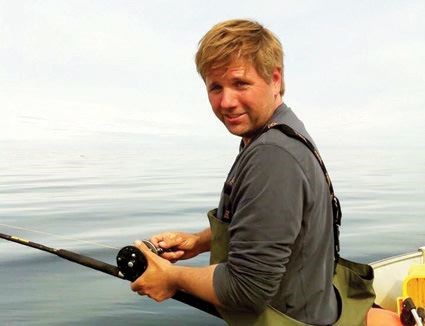When a drunk driver faces the courts, their sentence should reflect the tragic circumstances, the senselessness of the act and offer a message to the community - and all drivers - that when the crime causes death, it will be dealt with severely.
That was the key argument presented by the Crown Monday in its recommendation that Christopher Clayton Scott McGuiney be sentenced to four years in prison, a 10-year driving ban and a DNA order for impaired driving causing death of Duane Francis Pearson, killed Jan. 17, 2014 less than a minute from his job.
"Tragic for the Pearson family and to be fair, tragic to the McGuiney family," said Crown counsel John Cliffe. "Why? Because of a senseless crime. There's no sense in any of this."
McGuiney appeared in B.C Supreme Court for the second day of a sentencing hearing, after an emotional Friday for the Pearson family and friends. Court heard 20 victim impact statements, which spoke of the 46-year-old father's humour, kindness and positive impact on those in his life.
How the crime has impacted others is important for the court to hear, though empathy should not sway a sentence, Cliffe noted.
"The consequences are brought home palpably to the offender," he said.
In a single sentence, McGuiney addressed the court at the end of his hearing.
"I'm sorry for what I put this family through and also what I put my family through."
There are many aggravating factors in the case, Cliffe argued, before laying out eight items.
Chief among them was McGuiney's record, which includes two criminal convictions for driving while impaired. In 2007, he was handed a five-year driving ban.
"He was fined, he was jailed and he was given two driving prohibitions. That didn't stop Mr. McGuiney getting into the driver's seat of the F350," said Cliffe before turning to McGuiney's driving record. "More important are the numerous suspensions and prohibitions that appear to flow from drinking and driving."
The Criminal Code regards a blood alcohol reading above 0.16, or a high level of intoxication, as an aggravating factor. When McGuiney crossed into Pearson's lane that night, tests show he was between 0.192 and 0.214.
Both Crown and defence characterized McGuiney as an alcoholic, although in a pre-sentence report he said he didn't have a problem. Cliffe said that shows he isn't taking the issue seriously, but defence counsel Paul Pakenham said it's not at all a surprising response.
"The signature of an alcoholic is denial," said Pakenham. "It is unfortunate he believes he can confine drinking to weekends."
Pakenham, who met McGuiney soon after the January crash, said he's watched the 31-year-old's health fail in the last 28 months.
His skin is sallow, he's lost weight, and has such trouble sleeping he eventually had to quit his job of 14 years at Fraser Lake Sawmills.
With only a Grade 12 education, it will be difficult for McGuiney to get a job again. His family is very supportive, however, and will take him in when he's out of jail. Pakenham recommended a two-year sentence.
Though the plea was entered in February this year, Pakenham said throughout McGuiney has been "adamant and unshakable" in his desire to plead guilty and get the sentencing over with, even knowing it will likely lead to jail time.
He asked the judge to make special note of that intention, and that McGuiney has basically been living with a conditional sentence since he was granted bail in December 2014.
He's since lived with his parents, been under a strict curfew and followed an order not to drink alcohol, which he breached once in December 2015.
"He has been perplexed as to why the matter has taken so long," said Pakenham who was himself "very troubled" by the length it took Fraser Lake RCMP to complete the investigation and lay charges in December 2014.
Disclosure came in "drips and drops" and it wasn't until last summer, Pakenham received enough information from which he could mount a defence.
He repeatedly referred to McGuiney as "very unsophisticated" and said at the centre of his problems was an older woman.
On that night McGuiney had been driving the now ex-girlfriend's truck.
The 40-year-old was in the passenger's seat and sustained some injuries from the crash.
"This was from the start a toxic relationship," said Pakenham and on the night in question McGuiney "yielded to her persuasions."
McGuiney still takes responsibility for his actions, said Pakenham, but "it was not a situation where there weren't contributing factors."
So often this particular crime is committed by "ordinary folks," Cliffe said, and so the court must take special care to denounce the choice.
"Mr. McGuiney is that kind of individual. He works hard. He liked to party with his friends. Nothing wrong with that. What's so terribly wrong is he got in front of a wheel and he drove off drunk," said Cliffe.
"The court has a basis for grabbing on to that because of the impact that you see here on the Pearson family and on the McGuiney family."
Justice Ronald Tindale reserved his sentence for another date.



